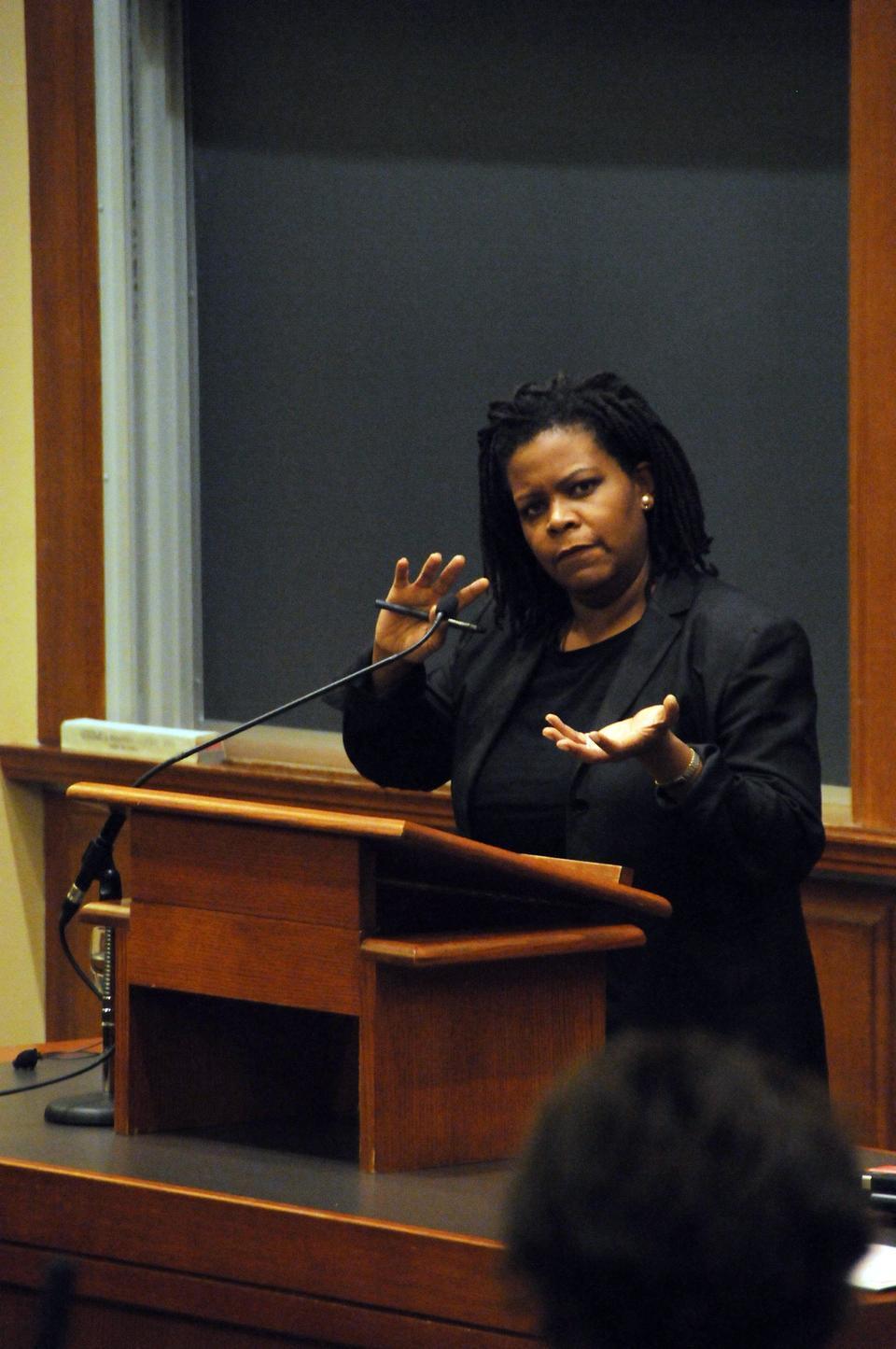
News
Pro-Palestine Encampment Represents First Major Test for Harvard President Alan Garber

News
Israeli PM Benjamin Netanyahu Condemns Antisemitism at U.S. Colleges Amid Encampment at Harvard

News
‘A Joke’: Nikole Hannah-Jones Says Harvard Should Spend More on Legacy of Slavery Initiative

News
Massachusetts ACLU Demands Harvard Reinstate PSC in Letter

News
LIVE UPDATES: Pro-Palestine Protesters Begin Encampment in Harvard Yard
Law School Professor Discusses Book

Visiting Harvard Law School professor Annette Gordon-Reed hosted a panel discussion yesterday evening about U.S. President Thomas Jefferson and his relationship with slave Sally Hemings.
The discussion, which took place in Austin Hall at the Law School, was based on Gordon-Reed’s latest book, The Hemingses of Monticello, in which she explored how Jefferson and Hemings’s relationship impacted their children.
The book, which was completed after 10 years of research, won several national awards including the 2008 National Book Award in Nonfiction upon its release.
Despite the amount of research she did on the subject, Gordon-Reed said that writing about the Jefferson-Hemings dynamic was no easy task.
“It’s difficult because you’re writing about a slave owner and an enslaved woman. There is the difficulty of pulling together the lives of people who don’t have lots of letters,” she said.
Harvard history professor James T. Kloppenberg said that Gordon-Reed’s book challenged older assumptions about Jefferson and the nature of master-slave relationships.
During the panel discussion that followed, Gordon-Reed explained the significance of acknowledging different accounts of Jefferson from the slave children that he fathered with Hemings, rather than relying on the accounts of white men who had no respect for the slaves.
“The historical witnesses who were enslaved were not given credence [but] the words of the people who owned them were accepted,” Gordon-Reed said.
Several people who attended the event said they were impressed by Gordon-Reed’s enthusiasm for the subject.
“Dr. [Gordon-]Reed has allowed our female ancestors to speak again through her research,” said Virginia C. Cash-Kemp, a Massachusetts resident who attended the discussion.
Brandon C. Slaughter, a teacher at Jeremiah E. Burke High School in Dorchester, Mass. and a descendant of Jefferson and Hemings, said he found the discussion interesting.
“I was very impressed [by Gordon-Reed’s discussion],” he said. “I’m a history teacher, so, above all else, I just think it is a unique story.”
Want to keep up with breaking news? Subscribe to our email newsletter.
